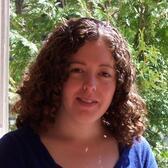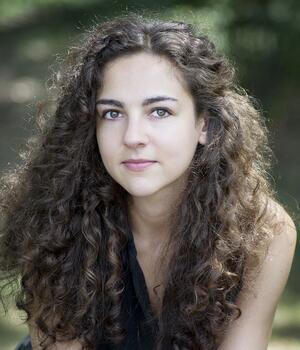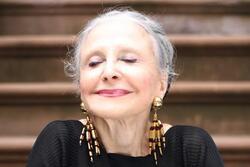An Interview with "Panic in a Suitcase" Author Yelena Akhtiorskaya
Yelena Akhtiorskaya's debut novel, Panic in a Suitcase, has brought her a whirlwind of accolades, including a spot on the National Book Foundation's "5 Under 35" list. After featuring her as part of a Power Couple for her unique take on the immigrant experience, our Web Content Editor, Lisa Feld, asked her about her writing, her new-found fame, and returning to Odessa decades after her family's exodus.
Congratulations on the success of your novel! How has it felt, promoting your book?
It’s kind of bizarre, because it’s the most un-writerly thing to do, to stand in front of people and talk about yourself.
Do you have memories of Odessa?
I came when I was seven, and on the one hand, I definitely have memories because it’s such an intense break, and I think I have more memories than I would have if I hadn’t immigrated, because it’s such a crazy change. But on the other hand, I don’t know what my memories really are, because everyone in my family tells stories over and over again, so a lot of the memories I have mix with the stories and photographs. It’s hard for me to separate what’s my memory from the joint family memory bank.
What has it been like, going back there as an adult?
Often when you go back to a place where you lived when you were a child, it’s not going back to a living place. But I still have family there, so what’s been interesting is on the one hand going back and seeing the apartment building where I grew up, and it looks horrible, it looks so shabby and small, and that’s not at all the way I remember it. But the other side of it is meeting my family and seeing their relationship to the city, which has changed so much since we left, it’s become a completely different city. So every time I go back, it feels like it becomes less of the place that I left and more trying to establish a living relationship with the new city as opposed to nostalgia.
Do you prefer writing novels or short stories?
I used to think of myself as being more of a short story writer, but I think different ideas tell you how they want to be told. My hope is that I’ll continue to do both, because it’s a completely different way of telling things, and I love doing both. The problem with short stories is they have to be very neat, there’s no space to go on tangents. And with a novel, you can be completely messy and include a lot of things that wouldn’t be able to go into a short story. If I had to choose one, I think right now I’m leaning more towards the novel. And also, short stories feel like they need to have an element of surprise, a twist or development, and I’m not as interested in that right now, so novels are more fun.
You’ve said that when you write novels, you tend to write them in two parts, with a gap in time or change in perspective. What is it about that that calls to you?
I don’t know that I’m drawn to it—I kind of fell into it. It feels like the center is somehow empty. I thought that it was going to be a continuous thing and I would describe everything that happens, but then realized there was no need. When you get the idea for a novel, it looks whole and beautiful, and complete, like a circle. And then the process of actually writing is like groping in the dark, and you have to find the solid parts. So you’re finding the stuff that needs to be told, and it’s kind of like sculpting, and that’s the shape that I find. That stuff in the middle didn’t need to be told, and it can be empty.
Do you feel your Jewish identity has shaped your writing at all?
Soviet Jews, as you know, we had no religion, no rituals. I grew up knowing I was Jewish, but that was the extent of it, in Russia that was enough, everyone knew you were Jewish and that you were different. But then coming to America, you realize that’s not the case. I don’t observe Jewish tradition, but in terms of my writing, that’s where I’m very Jewish. The writers that I love and go back to all the time are all Jews. It seems to me that the Jewish type of storytelling is very particular, even if they’re different: Saul Bellow, Phillip Roth, Grace Paley. There’s anecdotes, there’s humor, and this is what I love to read, and I think that’s in my blood as well. And that’s the way my family tells stories, too, with that humor. I think that my writing is very Jewish, just in this sideways way.
What are you working on now?
I’m working on a novel and it involves a lot of the same characters as the first one.
It’s great that there’s more there that’s calling to you.
I wanted to get away from it, because I promised my family—Panic in a Suitcase is fiction, and a lot of it is made up, but some does align with my family. And I promised that I would no longer be writing about them, and I had to break that vow.
I think that’s a struggle for a lot of novelists.
It’s been a slow process of getting them acclimated to that. There’s been intense moments. I think my mom has had five “heart attack moments.” The first one came with a story about one of her friends, and then I told her I was writing about a family that was sort of like ours, but I didn’t give it to her for a very long time, so she had time to prepare herself, but she was still in a cold sweat when she read it. It’s probably been the biggest mental challenge for me to deal with.







